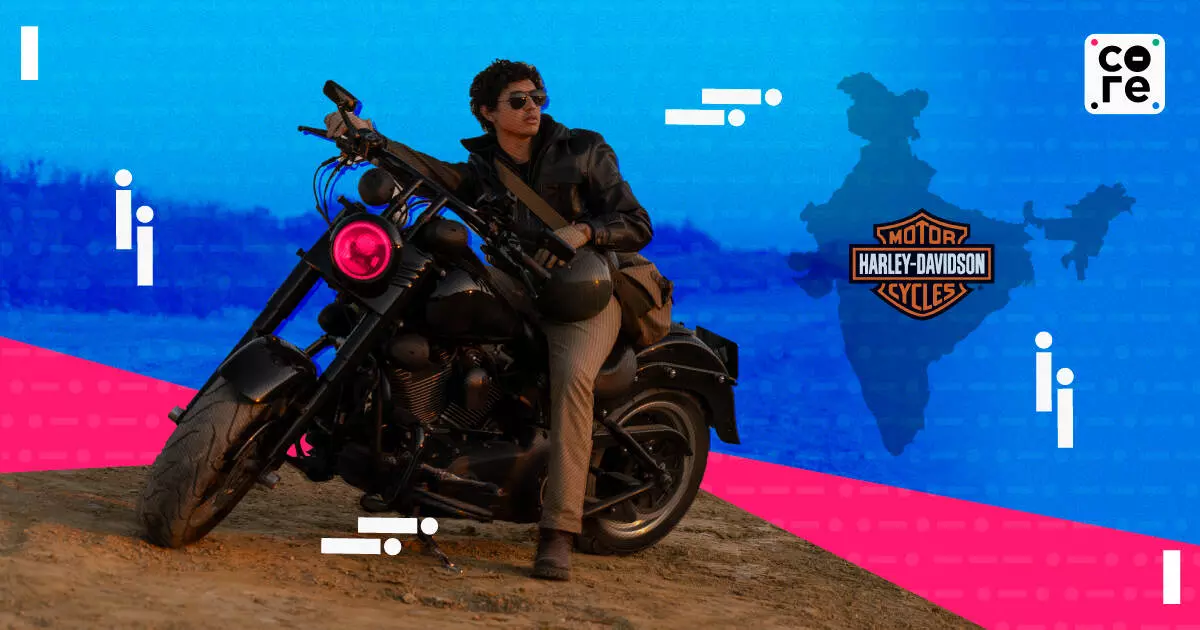
India's Automotive Ace: Why Even Harley Plays By Local Rules
Harley’s path is somewhat similar to Ford who of course has entered and exited India three times, the last time being the latest entry last month.

In 1930, Colgate Palmolive listed on Wall Street, more than 100 years after its founding as a starch, soap and candle business in New York city. In 1937, a decade before independence, the company arrived in India with its Colgate dental cream.
I usually think of Colgate whenever someone asks me about India-US economic relations as I was at a recent small gathering of leading communications professionals from around the world. The specific question was about the impact of a Trump or Harris presidency. I really struggled to think of what could change dramatically.
For instance, what could change for an all American corporation like Colgate who has been in India for close to a century and with public shareholding for close to 50 years?
Well, there is a new angle. And that is the iconic motorcycle brand Harley Davidson, a midwest-based company that is younger by almost 100 years as compared to Colgate Palmolive.
In an interview to Fox News last week, Presidential candidate Donald Trump raised the issue of India’s high tariffs on Harley Davidson bikes. Actually, he raised the same issue in the context of Harley in 2017 as well, referring to the 100% tariff levels, though both India and Indonesia had similar tariffs. Trump’s point now is that America should slap reciprocal taxes on countries like India.
The interesting thing is that Harley, like many other auto giants, have over time accepted the fact that the best route to the India market is to have local manufacturing or assembly which it set up in 2010 before launching its range of bikes. Around 2019, however, it said it was shutting shop because of lower than anticipated volumes and of course high tariffs.
Exactly a year later, it returned, this time in partnership with Indian two wheeler giant Hero Motors. The strategy this time: smaller sized bikes, local partner and of course more affordable price, for example, the X-440 range which is made in Neemrana, Rajasthan and sells for Rs around Rs 2.4 lakh.
Harley’s path is somewhat similar to Ford who of course has entered and exited India three times, the last time being the latest entry last month.
For Trump, there is political mileage in aligning with a brand like Harley which is all-American though not as large as a car brand like Ford or General Motors. GM has also exited India after a not so happy run.
But Harley’s own actions are more practical and pragmatic. This can be understood by its desire to return to the Indian market, just about the largest two wheeler market in the world as it is projected to surpass China this year.
On the other hand, India’s policy has been consistent and focussed on encouraging local manufacturers and job creation, except for a brief interlude earlier this year when it looked like policy makers would cave in to Elon Musk’s charms and allow imports of Teslas without a local plant.
There is still some heartburn among other global car makers on India’s EV policy. It would be interesting to see how it evolves if Trump were to be elected and Elon Musk starts playing a role in the government, even if it is a distant one, as has been suggested.
But that is a discussion for another day.
The bottomline is that self-interest will drive some economic policies, even if not all, for both countries. India’s automotive market is amongst the most competitive, open and fair and in some ways a benchmark in a globalised world.
In 1999, in an amazingly prescient observation, then Ford CEO Jack Nasser said he saw Ford as a local manufacturer and exporter and wanted to harness India’s brainpower in IT. Moreover, he was against imports and quoted the example of countries like New Zealand where imports had killed the local car industry.
It struck me later that automotive leaders like him were also against imports because they were now vested and invested in India.
Harley Davidson seems to have concluded similarly as has Ford in its subsequent avatar. Maybe Trump’s new avatar, if he were to be elected next month, would view things a little more pragmatically as well and in India’s favour.
Harley’s path is somewhat similar to Ford who of course has entered and exited India three times, the last time being the latest entry last month.
Rohini Chatterji is Deputy Editor at The Core. She has previously worked at several newsrooms including Boomlive.in, Huffpost India and News18.com. She leads a team of young reporters at The Core who strive to write bring impactful insights and ground reports on business news to the readers. She specialises in breaking news and is passionate about writing on mental health, gender, and the environment.

